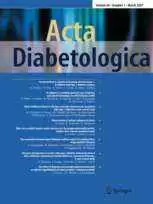Celiac.com Sponsor (A12):
This article was posted to the Celiac Listserv by Ashton Embry at: Open Original Shared Link in January, 1998:
I became interested in the concept of a Paleolithic Diet in a circuitous way which began with the diagnosis of my oldest son with multiple sclerosis two and a half years ago. I hit the med library soon after I was told that there was no known cause and no effective treatment for MS. My goal was to determine the most likely cause and to then devise a therapy which countered this cause. After reading hundreds of papers and countless more abstracts I reached the conclusion that the main cause of MS is dietary and that dairy, gluten and saturated fat were the three main offending foods. I have summarized this analysis in an essay which is at
The evidence I used to reach my interpretation was a combination of epidemiology, theory (molecular mimicry) and anecdotal data. After the essay was on the web I was contacted by Loren Cordain who pointed out that the foods implicated in MS were recently introduced to the human diet from a genetic point of view and he gave me the references to Boyd Eatons classic papers on Paleolithic Nutrition. From my geological background this concept seemed eminently reasonable so now I had an excellent unifying concept to go along with all the other data. One shortcoming of the evidence was that it was all circumstantial. There was no smoking gun evidence, that is, empirical evidence which demonstrates beyond a reasonable doubt that food proteins really do cause cell-mediated, organ-specific autoimmunity.
As a dutiful civil servant, I made one of my required pilgrimages to Ottawa last week to participate in various mind-numbing meetings. I had a free afternoon so I went out to the Nutrition Research Division of Health Canada where I had the good fortune to meet with Dr Fraser Scott. Dr. Scott has been studying the effect of diet on the development of Type 1 Diabetes in BBdp rats for 20 years. He and co-workers have demonstrated conclusively that Type 1 diabetes can be generated by proteins derived from wheat, soy and milk. So now I had found the smoking gun. Food proteins can indeed induce cell-mediated autoimmunity and not surprisingly the foods which supply the pathogenic proteins are those added to the human diet during the Neolithic. I believe Dr. Scotts work is of great significance for understanding the cause of autoimmune disease and strongly supports Eatons suggestion the diet of our ancestors is the best defense against the diseases of civilization.
References:
- The best reference for Scotts work is: Scott, FW, 1996, Food-induced Type 1 Diabetes in the BB Rat. Diabetes/Metabolism Reviews, v.12, p. 341-359.
- This paper summarizes all his results up to 1996 and contains references to all his earlier work.






Recommended Comments